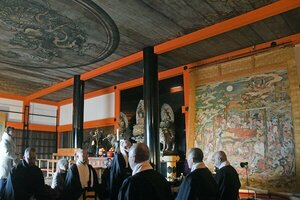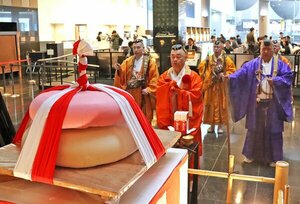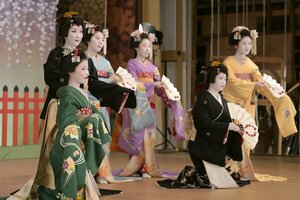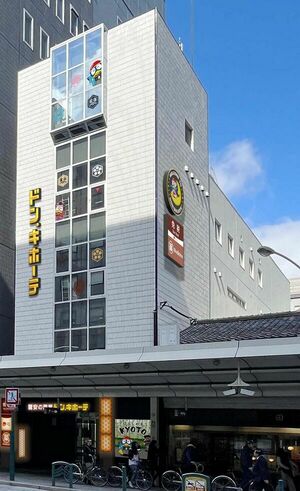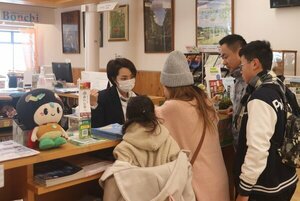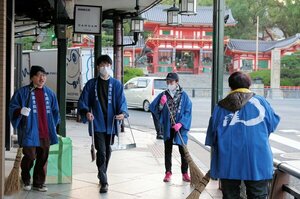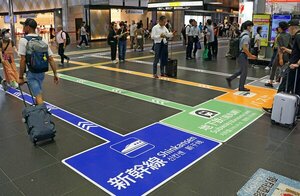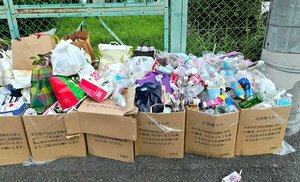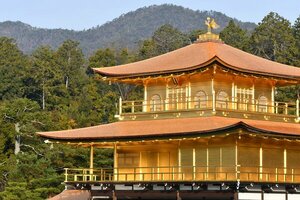At the end of January, an elementary school school lunch menu in Kameoka City, Kyoto Prefecture, was served with scallops. According to the Kameoka City School Lunch Center, bivalves are rarely served in school lunches due to the risk of food poisoning, and ''this is probably the first time the child has eaten scallops.'' The reason this happened was due to a problem that has been going on since last year.
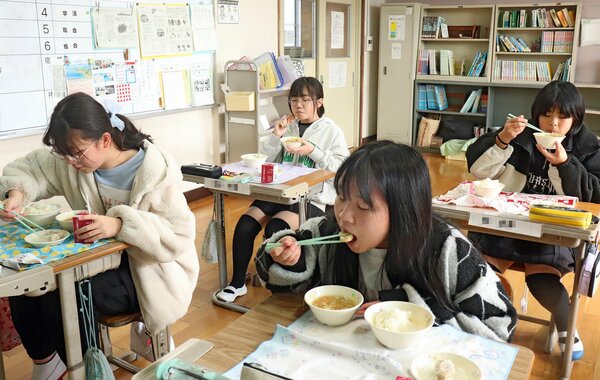
The Happo greens served in school lunches at nine schools on January 29th and the following day on the 30th contained large scallop scallops weighing approximately 15 to 20 grams each. At Hozu Elementary School (Hozu-cho, Kameoka City), four sixth-graders were smiling as they brought it to their mouths. A 12-year-old sixth-grade girl said, ''The scallops were soft and fluffy,'' and another 12-year-old girl said, ''The scallops I bought at the supermarket were hard, but they were soft and fluffy and delicious.''
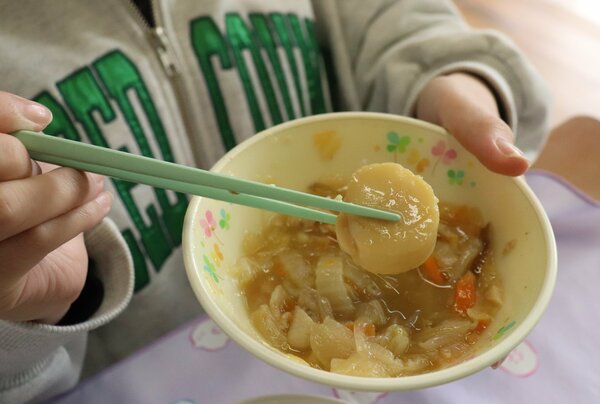
The scallops were a gift from Morimachi, Hokkaido. The town, located approximately 40 kilometers north of Hakodate City, boasts an annual catch of 150,000 tons and processing of 220,000 tons, ''It is no exaggeration to say that the town's industry is based on scallops.'' (Town Chamber of Commerce and Industry) Tourism Division). Exports were also active, and one of their customers was China.
However, in August last year, China objected to the start of releasing treated water into the ocean at the TEPCO Fukushima Daiichi Nuclear Power Plant in Fukushima Prefecture, and completely suspended imports of Japanese seafood. The town's scallops also had nowhere to go, and fishermen and processors were hit hard.
Therefore, Mori-machi started a project in September to provide the food free of charge as an ingredient for school lunches to local governments across the country who request it, in order to ''let even children who have never eaten it know how delicious it is.'' The company purchased approximately 32 tons of frozen scallops from a vendor using a subsidy from the government's nuclear power plant treatment water reputation impact countermeasures project. The town also pays for shipping charges.
Kameoka City was the only municipality in Kyoto Prefecture to raise its hand, stating that ''Mori-machi's frozen scallops have good hygiene management, so the risk of food poisoning is low.'' Approximately 150 kilograms were delivered to all children and approximately 5,000 teachers in late January of this year. A Mori Town official said, ''We hope to increase domestic demand for scallops and increase the town's profile.''


